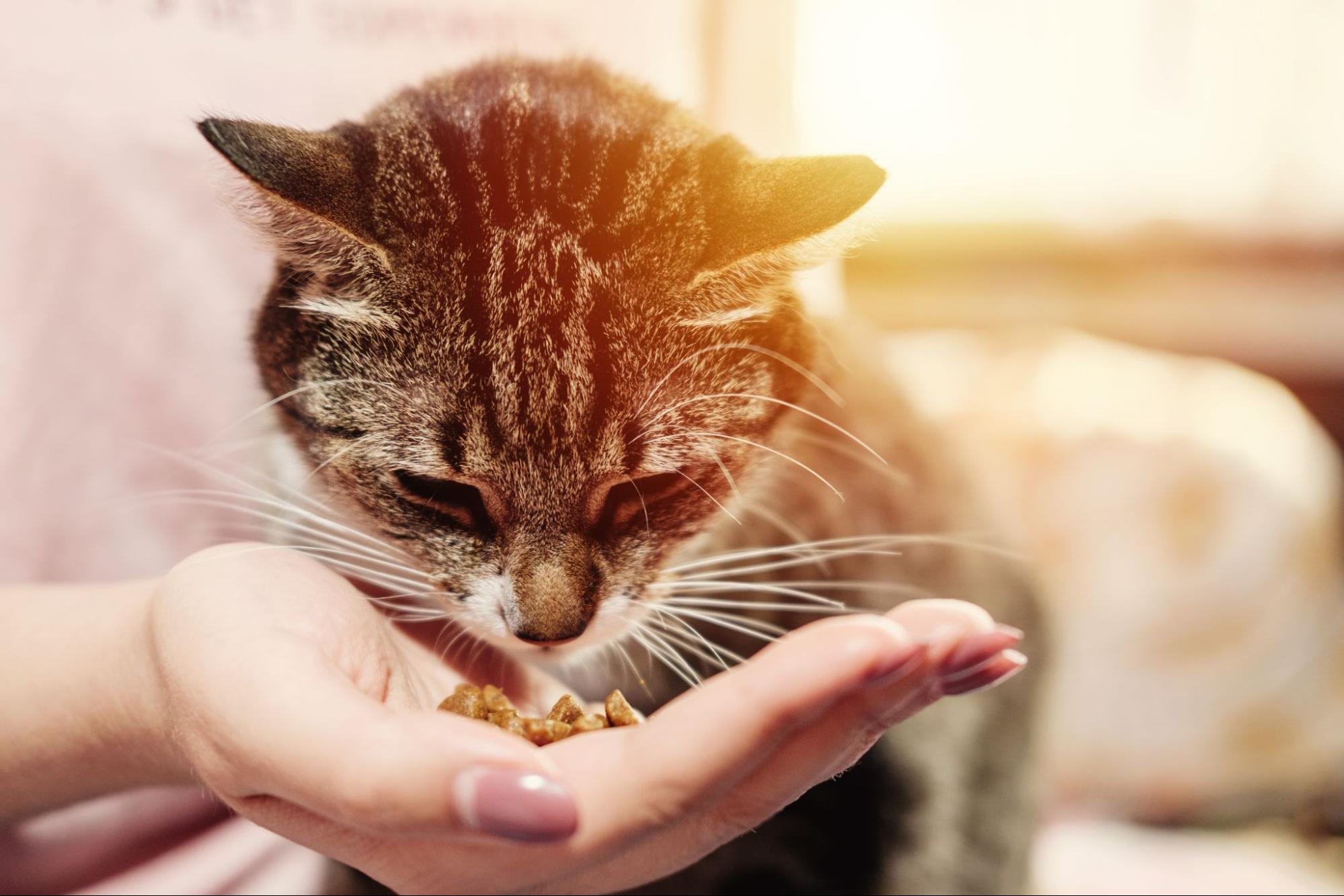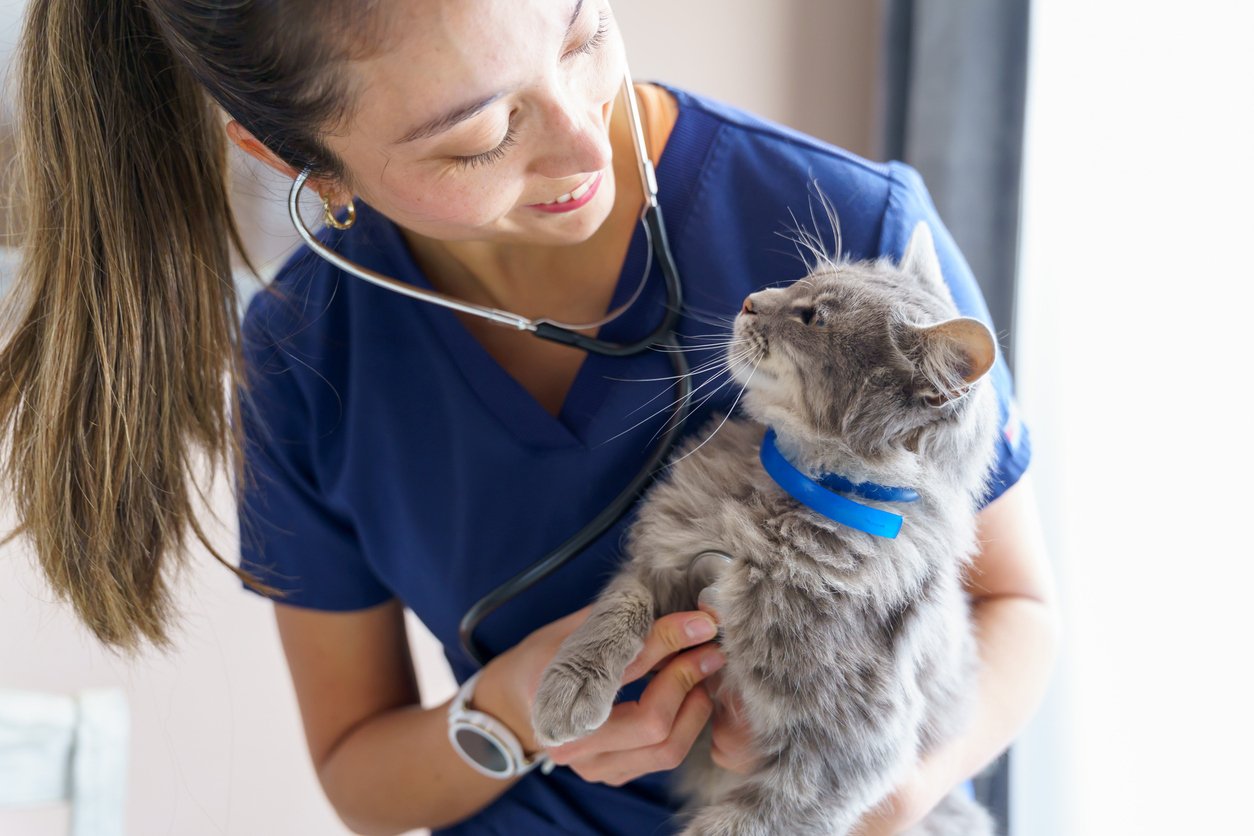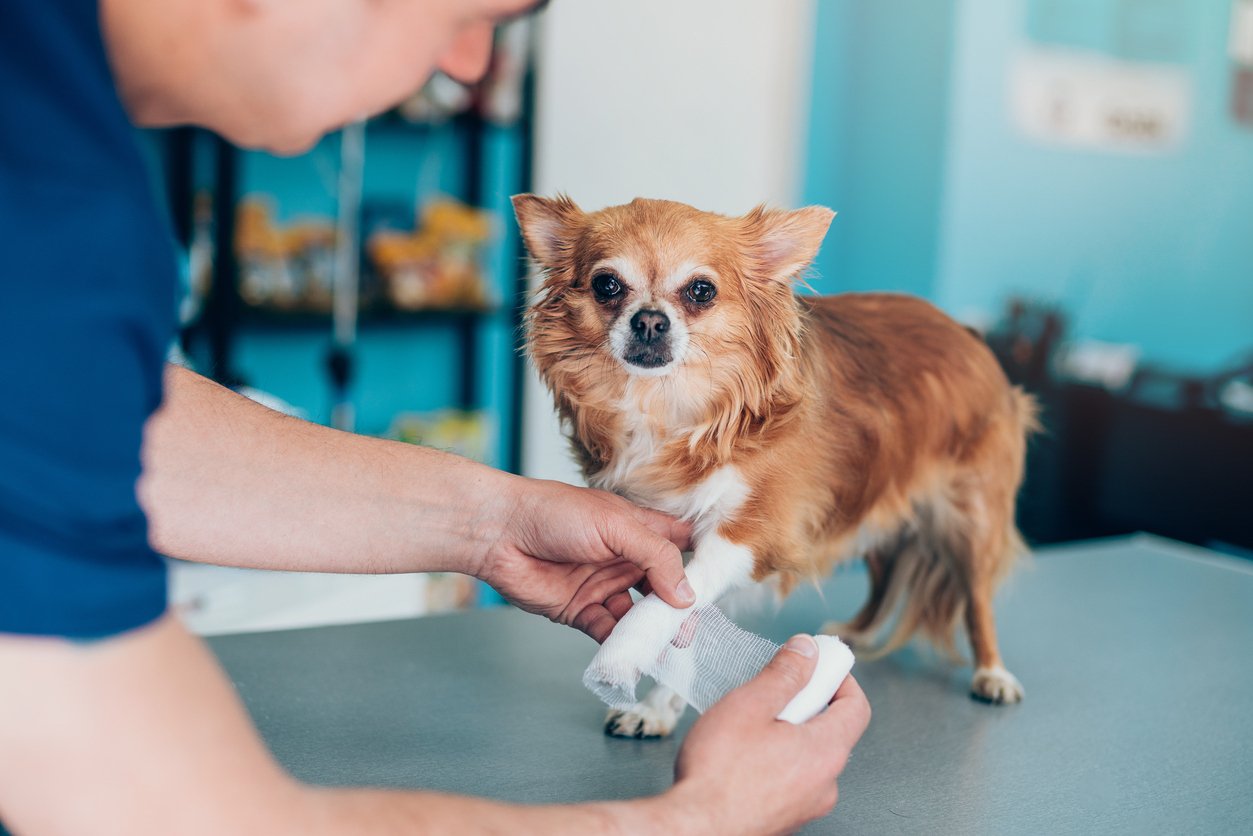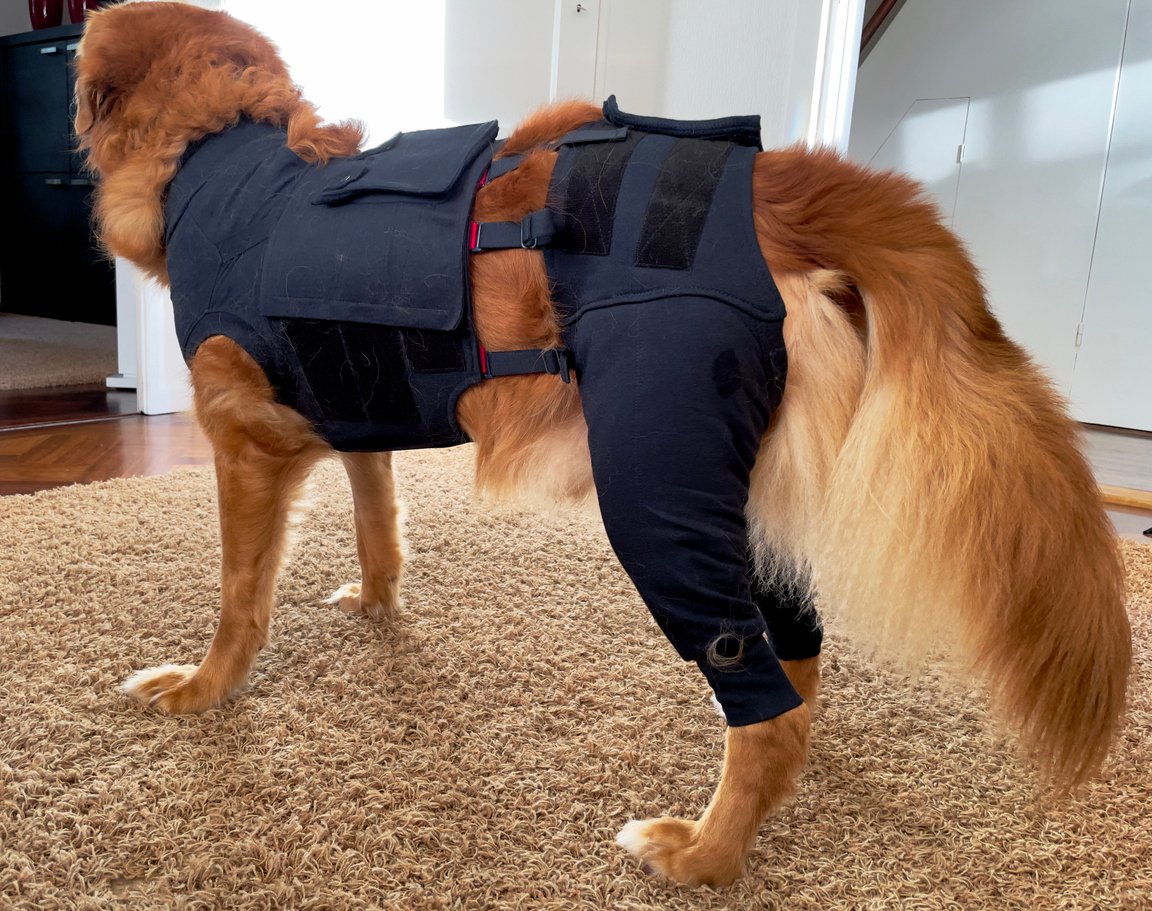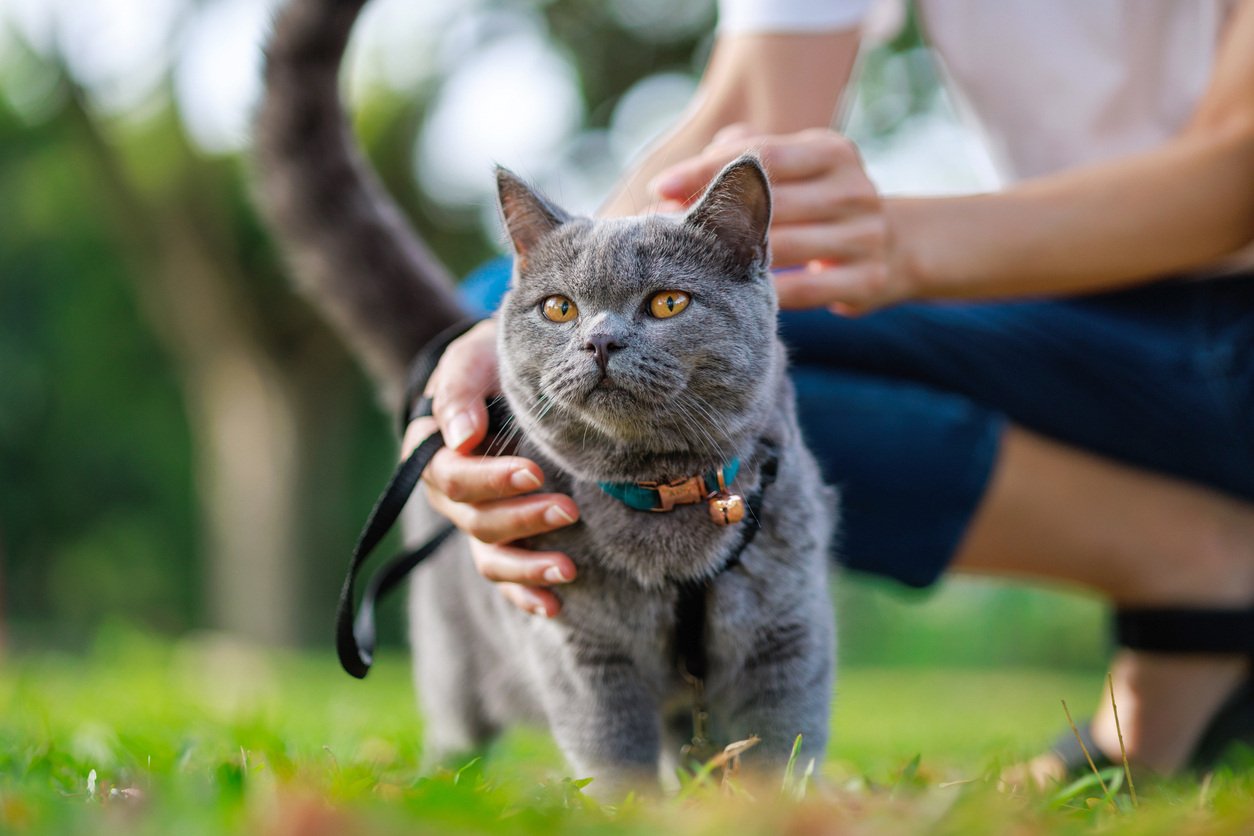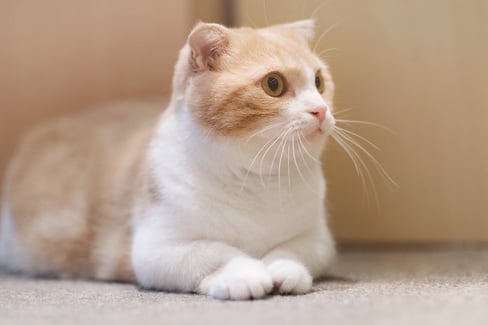Table of Contents
There’s nothing worse than when your kitty gets a bout of the stomach bug. Not only is it just plain gross, but what cat owner wants to see their little feline feeling ill?
The good news is that tummy troubles in cats are preventable. Introducing cat probiotics into your feline's diet is one big way to help prevent these issues.
Cat probiotics introduce microorganisms into your cat’s diet to help balance out their stomach flora and prevent upset tummies. We’ll explain why these supplements matter, their benefits, and the best products for getting your cat’s tummy in tip-top shape.
What Are Cat Probiotics?
To start off, let’s go over what cat probiotics are and why they matter. Cat probiotics are products made from strains of live microorganisms, which are especially important for the maintenance of cat intestinal health.
The microbiological ecosystem of a cat's digestive tract includes millions of microorganisms, including both beneficial and harmful bacteria. Sometimes the balance of those bacteria gets out of whack, leading to more harmful bacteria than healthy bacteria. When that happens, your cat can start to feel unwell.
Cat probiotics prevent your cat’s microbiome from getting out of sync in the first place, helping protect the digestive system, aiding in absorbing nutrients, breaking down food into digestible fractions, and synthesizing vitamins. On top of that, they contain components that will help your kitty get the most out of its food.
Sometimes pet owners will also incorporate these nutritional supplements after a treatment prescribed by the vet. In these cases, probiotics can help support healing and recovery.
Why Are Natural Cat Probiotics Recommended?
As you can probably imagine, you can find probiotics naturally in many types of cat food. However, the quantity of probiotics isn’t always enough to fully support your cat’s digestion. That’s why introducing additional cat probiotics is a good idea.
While there are many different types of probiotics, you’ll want to look for one that doesn’t contain artificial or harmful ingredients. When they do, these supplements can actually end up making your cat feel worse rather than better!
Instead, you’ll want to look for natural supplements free of preservatives, fillers, and colorings. These natural supplements help support a healthy kitty without worsening any unwanted symptoms.
You can also try introducing natural, homemade supplements as well. A couple of options that can work for your cat include:
- Sugar-free natural yogurt
- Kefir
- Sauerkraut
Cat Probiotics Powder vs Cat Probiotics Pills
Cat probiotics often come in either a choice of a pill or a powder. Both are equally as effective in improving intestinal health in cats. The choice between the use of probiotics in powder or tablet form will depend on the owner's preferences and the specific needs of the cat in question.
Powdered probiotics are often easier to administer in cat food, as they can be easily mixed with:
- Dry food
- Wet food
- Snacks
Some cats may prefer the taste of the powder rather than a pill. However, it may be more difficult to measure the exact dosage of the powdered probiotic, and you might have to purchase a scoop or another tool to make dosing easy.
On the other hand, probiotics in pill form are often easier to dose accurately and may be convenient for anyone traveling with a cat. However, some cats may be more difficult to convince to take a pill, especially if they’re not used to it.
Benefits of Probiotics for Cat
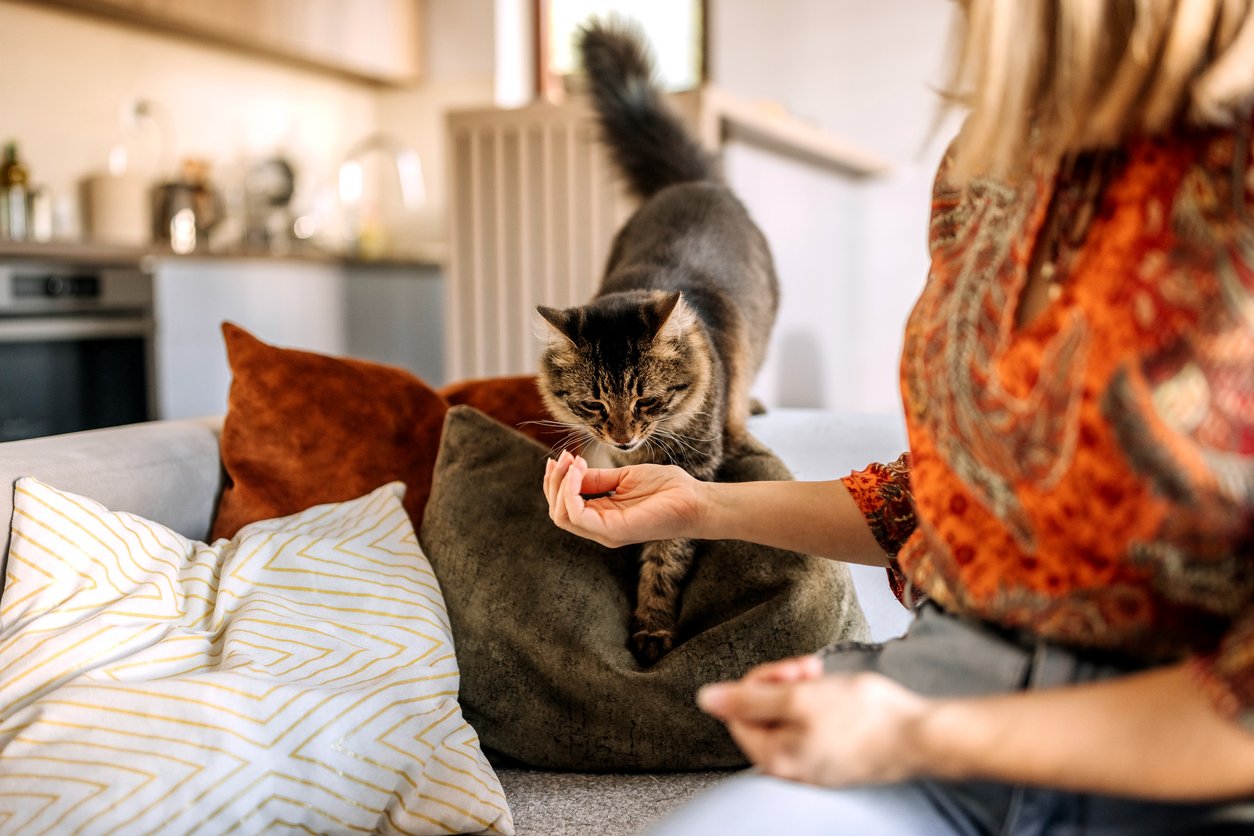
If you’re not sold on giving your cat probiotics, you should be. Probiotics have many benefits for cats, such as improving digestion and immune systems. The table below lists some of the key benefits of cats taking probiotics.
|
Benefit |
Reason |
|
Promotes healthy digestion |
Slow bowel transit can occur for many reasons, from a clogged hairball to stressful situations such as pain and illness. A healthy balance of microbiota prevents common ailments such as diarrhea or constipation. |
|
Strengthens immune system |
Stimulation of the immune system and proper absorption of nutrients is an important tool in the fight against pathogens. |
|
Reduce swelling |
Probiotics influence cat anti-inflammatory processes in the digestive tract and other systems. |
|
Prevention of allergies |
Thanks to its influence on inflammatory processes, allergic reactions can also be prevented. |
|
Decrease in local pH |
A low, i.e. acidic, pH can help prevent the development of pathogenic bacteria and colonization by commensal microorganisms of the intestinal microbiota. |
Types of Cat Probiotics
There are a couple of different probiotics for cats out there, and each one offers its unique benefit. When reading nutrition labels, it’s important to know what type of probiotic you’re looking at to know what the probiotic does for your pet.
To make it easier, let’s look at four of the most common types of cat probiotics you’ll find in supplements.
1. Lactobacillus acidophilus
Lactobacillus acidophilus is a type of beneficial bacteria found naturally in the intestine of cats. It helps maintain a healthy balance of bacteria in the gut and supports proper digestion.
Your veterinarian may recommend a cat probiotic with Lactobacillus acidophilus to treat digestive disorders in cats, such as diarrhea or constipation. It may also be useful in preventing bacterial infections in the urinary tract and other systems.
You may also come across other strains of Lactobacillus, including Lactobacillus brevis, Lactobacillus rhamnosus, Lactobacillus buchneri, and Lactobacillus casei. As these are related to acidophilus, they have the same effect on your cat.
2. Enterococcus faecium
This cat probiotic helps maintain the balance of beneficial bacteria in the cat's intestine and is especially useful for cats with digestive problems.
The efficacy of Enterococcus faecium has also been documented in cats infected with feline herpesvirus 1 (FHV-1), suggesting that administration of this probiotic reduces the morbidity associated with this disease.
3. Bifidobacterium bifidum
Bifidobacterium bifidum supplements, in addition to improving the immune system, treat common diseases and disorders of the digestive tract and can improve recovery from inflammatory bowel disease. The reason for all this is that this microorganism is one of the most important for the proper functioning of food digestion in cats.
4. Saccharomyces Boulardii
Saccharomyces Boulardii is also a native microorganism of many animals' small and large intestines, including the cat. It has incredible restorative properties of the intestinal microbiota when infected by Clostridium difficile. It doesn’t spread to other areas of the body and restores digestive balance.
Best Cat Probiotics
Now that you know a few of the different types of cat probiotics out there, let’s go over a couple of the best cat probiotics.
Remember, although these are some good suggestions, you must also consider nutritional needs, age, medical history, and veterinary advice to help you decide which cat probiotic is the best. Your best bet is always to schedule an appointment with the vet before making any final decisions. That way, you ensure you get a cat supplement that works for your kitty.
Another thing to remember is that although you’re looking for probiotics, it’s not a bad idea to incorporate other supplements in conjunction. Probiotics have great absorption capabilities, which means that when your cat takes them, they can soak up other nutrients as well.
Cat supplements like TRI-ACTA or TRI-ACTA H.A, for example, can pair well with probiotics and help support your pet’s joints and connective tissues. The result is that you can support your cat’s health from any angle!
TRI-ACTA for Pets
A proactive approach for developing and younger adult pets to maintain optimal joint health mobility, minimize inflammation and fend off age-related ailments.
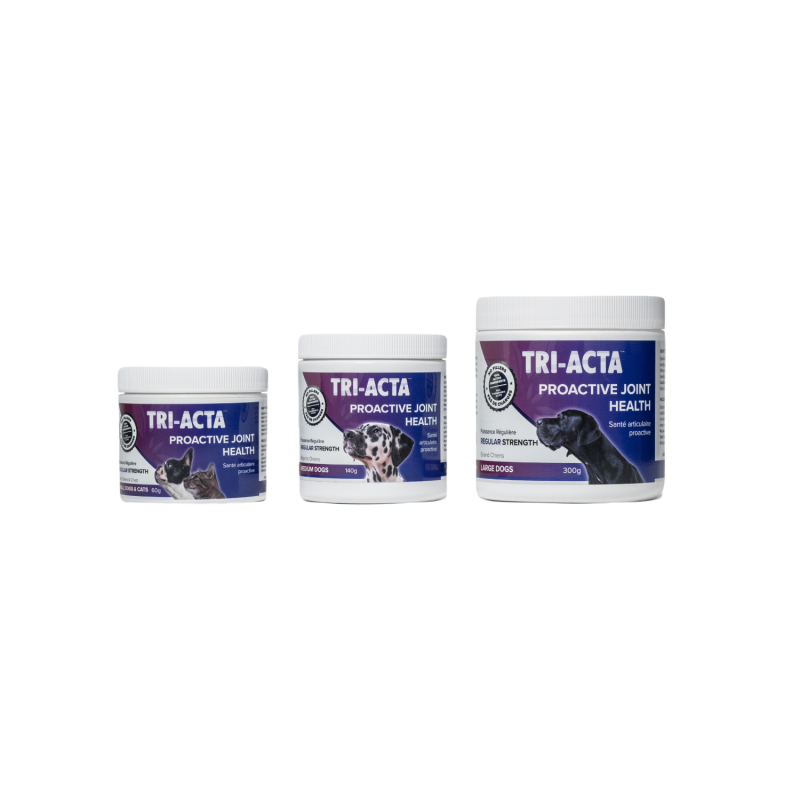
With that in mind, let’s review a couple of the best cat supplements with probiotics for your pet.
Daily Probiotics by Pet Naturals
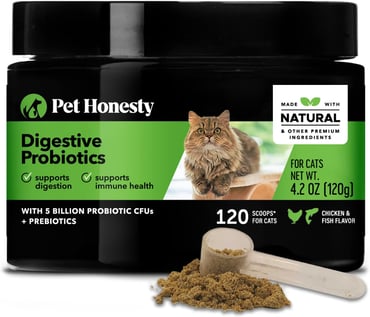
Pet Honesty is a natural cat probiotic brand that helps support healthy digestion and immune health. Better yet, this probiotic is made of natural ingredients and doesn’t contain harmful GMOs, wheat, soy, or any chemicals.
The product comes in a powder with a scooper for easy dosing. Just measure out a scoop of the powder and mix it into your cat’s food!
A few of the key ingredients in this particular product are:
- Bifidobacterium bifidum
- Brewer’s dried yeast
- Flaxseed meal
- Chicory root fiber
- Catnip
*Price starts at CAD $36.84 as of March 2023
FortiFlora by ProPlan
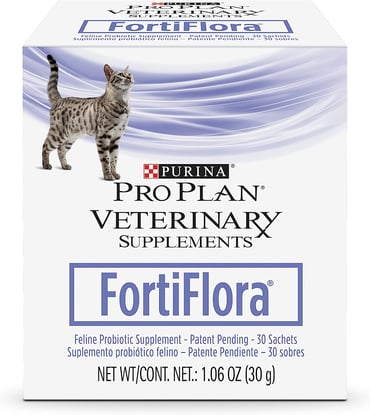
ProPlan offers a special option for kittens that are going through an acute digestive infection with diarrhea problems, in addition to strengthening the immune system with its recommended doses of live strains.
This particular probiotic is very easy to dose since the product comes in small pouches that measure out the right amount of the supplement. Then, all you have to do is mix it with your cat’s food, and you’re good to go.
A few of the key ingredients in this supplement are:
- Enterococcus faecium
- Vitamin C
- Liver flavors
- Vitamin E
- Taurine
- Manganese proteinate
*Price starts at CAD $42.26 as of March 2023
Conclusion
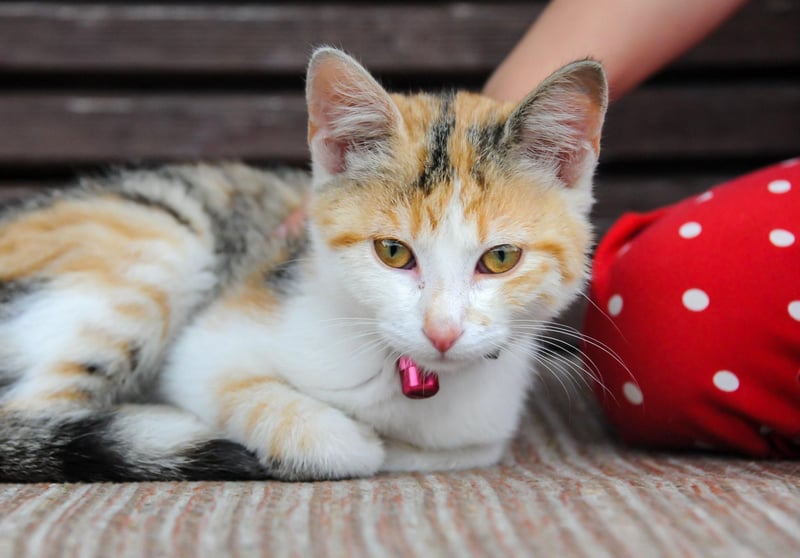
Although the hope is that cats never struggle with digestive issues, sometimes illnesses pop up that leave them feeling less than their best. The good news is that you can help prevent these types of infections and complications using probiotics.
Together with a balanced diet, physical activity, and good lifestyle habits, probiotics help ensure your cat enjoys a long and healthy life. You can introduce a few different probiotic types: Enterococcus faecium, Lactobacillus acidophilus, Bifidobacterium bifidum, and Saccharomyces Boulardii. Whatever you choose, just remember to consult your vet first.
Besides probiotics, another handy type of cat supplement to work into your kitty’s diet is TRI-ACTA. TRI-ACTA is a joint supplement that helps support a healthy cat lifestyle. If you want to learn more about it and how it can support a healthy cat’s diet, check out our FAQs or drop us a line.
TRI-ACTA for Pets
A proactive approach for developing and younger adult pets to maintain optimal joint health mobility, minimize inflammation and fend off age-related ailments.

Newsletter Signup
Subscribe to our newsletter to receive the latest news and exclusive offers.
.jpg?height=2000&name=Cliick_Integricare-DISPLAY-REVISEDV2%20(1).jpg)
Proactive & Therapeutic Joint Supplements
When given daily, Integricare joint supplements recover bone and joint injuries faster and help prevent mobility injuries from happening in the first place.

